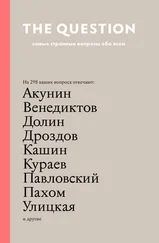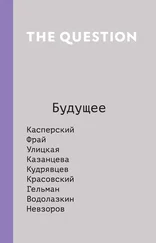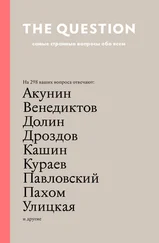That was one of the songs that his blues band, Blind Jozef Pronek & Dead Souls, well known and liked in Sarajevo, used to play, and, miraculously, she found it endearing.
But the next day she went with her camera-boyfriend to Kharkiv. Pronek went back to Sarajevo and wrote to her a series of, arguably, love letters, full of shades, ochre and auburn, of autumn leaves and reminiscing about the time (the total of some fifty-three hours) they had spent together. She wrote back that she sorely missed him and that she would like to see him again — a desire, Pronek feared, fueled by the unlikelihood of its fulfillment. They fabricated their past days together: in one of her letters they drank sweet wine, whereas in Kiev they had drunk infernal vodka all the time. He remembered her fragrance, although they were both perpetually stinky and sweaty in the city where water pressure was eternally low, so no one knelt under the faucet to wait for moribund droplets. They remembered, with painful intensity, dancing cheek to cheek — in reality (and reality is our business), they idiotically trotted to the rhythm of anachronistic German disco, while hirsute Ukrainian men swarmed around her, repeatedly trying to rub their perspiring bodies against hers. They failed to remember that Pronek could muster no puissance to repel them, while her boyfriend was having a coquettish conversation with the Canadian embassy undersecretary. Having forged a sufficient number of counterfeit memories, she suddenly invited him to Chicago, prompted, perhaps, by a news report about the war in Croatia and “tensions” in Bosnia. It was a gracious invitation — neither of them thought it could ever happen, but then Pronek got the invitation to visit the United States in the capacity of a freedom-loving writer, so he put Chicago in his itinerary.
Therefore, they were happy to be together again.
She looked different when he saw her at the airport: she was paler, her hair was shorter and darker, and she proudly wore a silver nose ring. Nevertheless, he was glad to be going down the highway with her, their car being sluiced with other cars toward the downtown gutter. The skyline looked flat against the blank sky, like the bottom of the Tetris screen, except there were no rectangles coming from above to fill the angular gaps.
Andrea drove through downtown, pointing at humongous, astringent buildings that admitted little light, and announcing their function. It all sounded like oversized gibberish to Pronek: the Board of Trade, the tallest building in the world, the biggest something, the busiest something else. Pronek rolled down the window — the cold pinched their ears instantly — and looked up. He could not see the end of those buildings. “This is how cockroach sees furniture in apartment,” Pronek said. “I’m sure,” Andrea said.
The few people that walked, bundled, down the streets were trying to retract their heads into their chests. They scuttled toward the warmth of building lobbies, while a chalky mist kept rushing past their shoes, in pursuit of a windless patch of pavement. Andrea and Pronek drove up Lake Shore Drive. Ice floes lingered in the harbor, as if hiding, shivering, from the waves that were clawing at thick layers of dun ice on the piers.
This is a rendition of Pronek’s coming to Chicago, in March 1992, on a flight from L.A., with an uncouth stain in his groin area, and love in his heart.
When Andrea unlocked the door (which had a sign saying: “Violators will be towed”) of her apartment, a pungent wave of smoke-and-French-fries stench washed off the walls of Pronek’s nostrils. “My roommate is a slob,” she said, as Pronek (and we with him) panned over the walls specked with ketchup (rather than blood, Pronek decided); a sofa with fluffy stuffing hatching out of its cushions; a stereo and a TV besieged by CDs and videos; a table buried under a wretched army of McDonald’s paper bags and cups viciously pierced by slim straws. There were smothered carcasses of cigarette packages and ashtrays brimming with butts and ashes. The window looked, dimly, at a generic brick wall. A porcine black cat (“Her name is Moskva,” Andrea said) glanced at Pronek, and then, having found nothing of interest in Pronek’s existence, continued staring out the window, at the wall.
Andrea pressed the “play” button on the stereo, and a Madonna song—“Material Girl,” we believe — made the cat slither off the sash and run to the kitchen, followed by Andrea and her foreign friend. “I hate fucking Madonna,” she said. “She’s a living sexist fantasy. My roommate is a fucking moron.” On the kitchen table, there was a mob of beer bottles with their labels ripped off, as if the stout bottles had been tortured and were now awaiting execution. The sink was overflowing with dishes, submerged in murky liquid. Every once in a while, a bubble would reach the surface, eventually bursting with a barely audible belch. There must have been, Pronek thought, a monstrous creature embedded in the sludge at the bottom of the sink.
“Who is your roommate?” Pronek asked.
“He’s my boyfriend,” Andrea said. “But we have separate bedrooms.”
“So, how long you have been together?”
“On and off, about ten years. But I hate the fucker, I think I wanna break up.”
“Does he know about me?”
“Oh, yeah. He sure as hell does. I told him you were coming. He doesn’t give a fuck. He knows everything.”
Well, we happen to know he didn’t.
She pushed aside the bottles and they helplessly clinked against each other, until they settled, thick as thieves, on the left side of the table. She pulled two chairs together and put two large cups of coffee at the liberated end of the table, whose surface, Pronek discovered, had prickly tobacco crumbles strewn and stuck to greasy film.
He wanted to touch her apple cheeks, and the shimmering gossamer on the nape of her neck, and the slope of her shoulders, and the little cavern under her breasts, which he had entered but once, in Kiev, and which was, once upon a time, delectably perspirant. He was mesmerized by her lips barely touching each other as she uttered her bs and ms, and her teeth flashed at him as she formed her fricatives. More than anything, it was the way she laughed: leaning slightly to the left and holding her tummy, as if protecting her viscera from spurting out, protruding the tip of her tongue — and finally producing a delightful chortle.
Pronek had fantasized about her, about her “unmediated body”—she did nothing to adorn herself. Her body was an instrument of investigation (this is, mind you, what Pronek thought), not an object to be packaged for men, so she could get them to like her. Pronek was sick of all the Sarajevo men and women who spent time performing little love rituals, designing themselves desirable. He wanted — he believed — true love and a true body with it. Andrea was his Statue of Liberty, a symbol of emotional freedom, a proof of the possibility that two people can be (Pronek’s italics) for each other, rather than perform love for each other. She could make, he imagined, all those Frank Sinatra songs, all those movies (Breakfast at Tiffany’s, Brigadoon, Gigi) about the inevitable, unconquerable, transcendental love, she could make that come true.
Hence he carried his two boxy suitcases to her room: her minuscule underwear lounging everywhere; her brassieres hanging, like rabbit skins, from doorknobs; a bag full of shoes and stacks of books on the floor, like a little downtown; the bed with crumpled green covers, kneaded by her body.
That night, they made love.
But before they did, she unrolled a scroll of condoms, and Pronek had to wear one. “This is the nineties,” she said. “People can touch each other only if they wear rubber gloves.” So he awkwardly put on his one-fingered glove in front of the entertained Andrea. As they were grinding the sheets, and the bed enthusiastically creaked, and the cat, having jumped on the bed, brushed his face with her downy tail, Andrea kept asking: “Isn’t this good? Do you like this? Isn’t this great?” It was good — the room reeked of bodily fluids and skin friction and dust. They breathed into each other’s faces and let their abdomens adhere. Then their little sex unit fissioned, and she went to the bathroom — her silhouette against the kitchen light, Pronek realized, was gorgeous. He disrobed his penis and lay in bed, the condom hanging from his hand, and he thought about his life. We are in a privileged position to assume what his train of thought might have been freighted with: What is going to happen to me? he asked himself. The things back home will never be well. War in Bosnia was likely, if unimaginable. He imagined marrying Andrea and having a writer’s career, teaching at a woodsy university. He would wear a tweed jacket with suede patches on the elbows; he would become jug-eared and bespectacled and gray-bearded; he would have season tickets for the symphony; he would frown often, and chuckle at the New Yorker cartoons; they would have children who would go to Harvard. He envisioned Andrea and himself, old, yet still in love, their bones shabby, their hair gray, their voices weak, sitting by a fireplace, their backs warm, reading books of the Old Masters, and their lawn would be green and colorful, while carefree warblers would hop all over their modest property. Then a sudden, rapacious itch in his crotch derailed the American-dream train, and Andrea walked in, spreading the scent of a heavenly shampoo. He kissed her wet hair on his way to the bathroom, carrying a dangling condom before him, as if it were a dead rat.
Читать дальше












